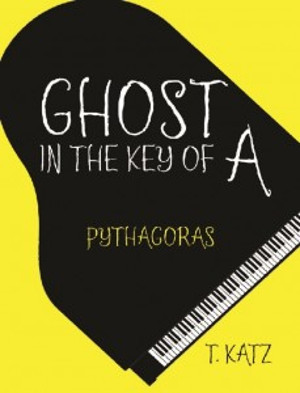
The story revolves around Priscilla Villanueva, a young girl who find herself practicing the piano while all the other kids are outside playing--and she can hear them. Frustrated with practicing, she bangs the piano with both hands just to make noise. When her mother comes in to get her back on track, she accuses her mother of torturing her by making her practice.
This scenario is not totally unfamiliar to a lot of young people who struggle to maintain their interest in learning to play an instrument. Many succumb to the appeal of being out playing with their friends instead of recognizing the long-term value of practice.
Patricia's mother tries to help her understand. When the door is closed, she begins to practice again--somewhat against her will--and finds that a low A on the keyboard is stuck. But then something strange happens, as the sound from the key grows louder and louder, and suddenly "the translucent image of a man in a tuxedo with pompadoured hair" appears. His name is Pythagoras, and he is there to teach Priscilla all about music.
Priscilla's father had never been terribly interested in seeing her pursue music, but thanks to the help of Pythagoras, in the end a secret about him comes out, Priscilla learns to love music, and she and her father develop a much closer relationship as a result.
As one who is always interested in finding ways to encourage young people to explore music, I applaud the author's efforts. I found the book a charming little tale, and suspect a lot of youngsters might relate to Priscilla, even if they don't have their own Pythagoras to help.
You can learn more about the author and the book by clicking here.
 RSS Feed
RSS Feed
